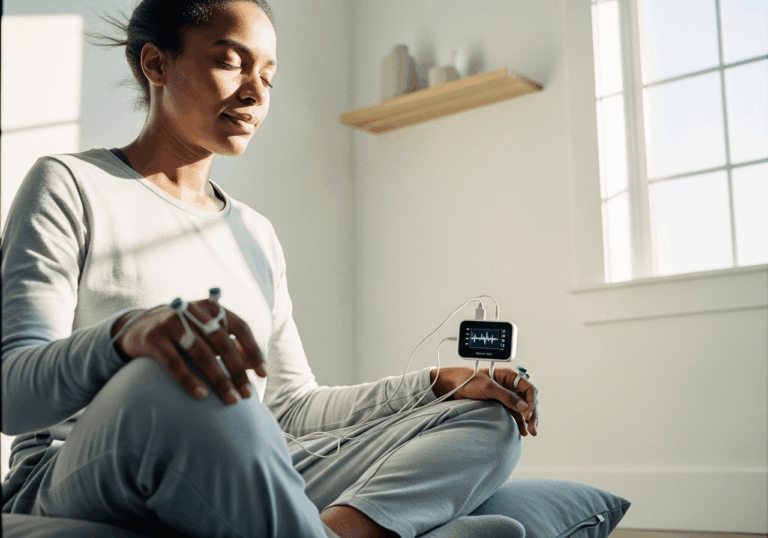Science-Backed Tips
Boost Your Brain Power with Resonance Breathing
One session can reduce errors by 30% under stress.
📊 Did you know?
💡 Why It Matters
1️⃣
Improved cognitive control can lead to better decision-making in high-pressure situations.
2️⃣
Enhancing mood through physiological changes can reduce stress-related health issues.
3️⃣
Lower Stroop errors indicate better focus and efficiency in daily tasks.
✅ Try These Micro-Tips
🎯
Practice resonance breathing for 10 minutes daily to enhance cognitive function.
🎯
Engage in 20-minute sessions of deep breathing before stressful tasks.
🎯
Incorporate resonance breathing into your routine to improve mood and reduce anxiety.
🎯
Use guided breathing apps to maintain consistency in practice.
📚 The study
This indicates not only an enhancement in cognitive performance but also a physiological uplift that can positively influence mood, especially under pressure.
The implications of these findings are profound; improved cognitive control can lead to better decision-making in high-stress environments. Furthermore, by enhancing mood through physiological changes, individuals may experience a reduction in stress-related health issues.
The study also highlighted that lower Stroop errors, a measure of cognitive efficiency, suggest that individuals can maintain better focus and efficiency in their daily tasks.
Overall, this research underscores the importance of integrating breathing techniques into stress management strategies, offering a simple yet effective tool for enhancing cognitive function and emotional well-being in challenging situations.
❓ Frequently Asked Questions ❓
Learn more
What is resonance breathing?
Resonance breathing is a technique that involves controlled breathing patterns to enhance physiological and psychological well-being. It aims to synchronize heart rate variability with breathing to improve mood and cognitive function.
How does resonance breathing affect executive function?
Resonance breathing has been shown to improve executive function under stress by reducing errors in tasks like the Stroop test. This improvement indicates enhanced cognitive control and better decision-making abilities.
What are Stroop errors?
Stroop errors occur when individuals struggle to name the color of a word that spells a different color, reflecting cognitive interference. Fewer Stroop errors suggest improved focus and efficiency in processing information.
How does resonance breathing improve mood?
Resonance breathing enhances mood by boosting cognitive control and reducing stress-related physiological responses. This physiological change can lead to a significant lift in mood, especially under pressure.
What is LF HRV power?
LF HRV power refers to the low-frequency component of heart rate variability, which is associated with autonomic nervous system regulation. Increased LF HRV power indicates better physiological resilience and emotional regulation.
How long should I practice resonance breathing?
It is recommended to practice resonance breathing for at least 10 minutes daily to experience cognitive and emotional benefits. Engaging in longer sessions, such as 20 minutes before stressful tasks, can further enhance these effects.
Can resonance breathing help with anxiety?
Yes, incorporating resonance breathing into your routine can significantly reduce anxiety levels. The technique promotes relaxation and helps regulate emotional responses to stress.
Are there any tools to help with resonance breathing practice?
Guided breathing apps are available to assist individuals in maintaining consistency in their resonance breathing practice. These apps often provide instructions and timing to optimize the breathing experience.
What is the significance of improved cognitive control?
Improved cognitive control allows individuals to make better decisions, especially in high-pressure situations. This enhancement can lead to more effective problem-solving and reduced stress-related health issues.
How can I incorporate resonance breathing into my daily routine?
You can incorporate resonance breathing by setting aside specific times each day for practice, such as in the morning or before stressful tasks. Consistency is key, so using reminders or guided sessions can help establish this beneficial habit.





